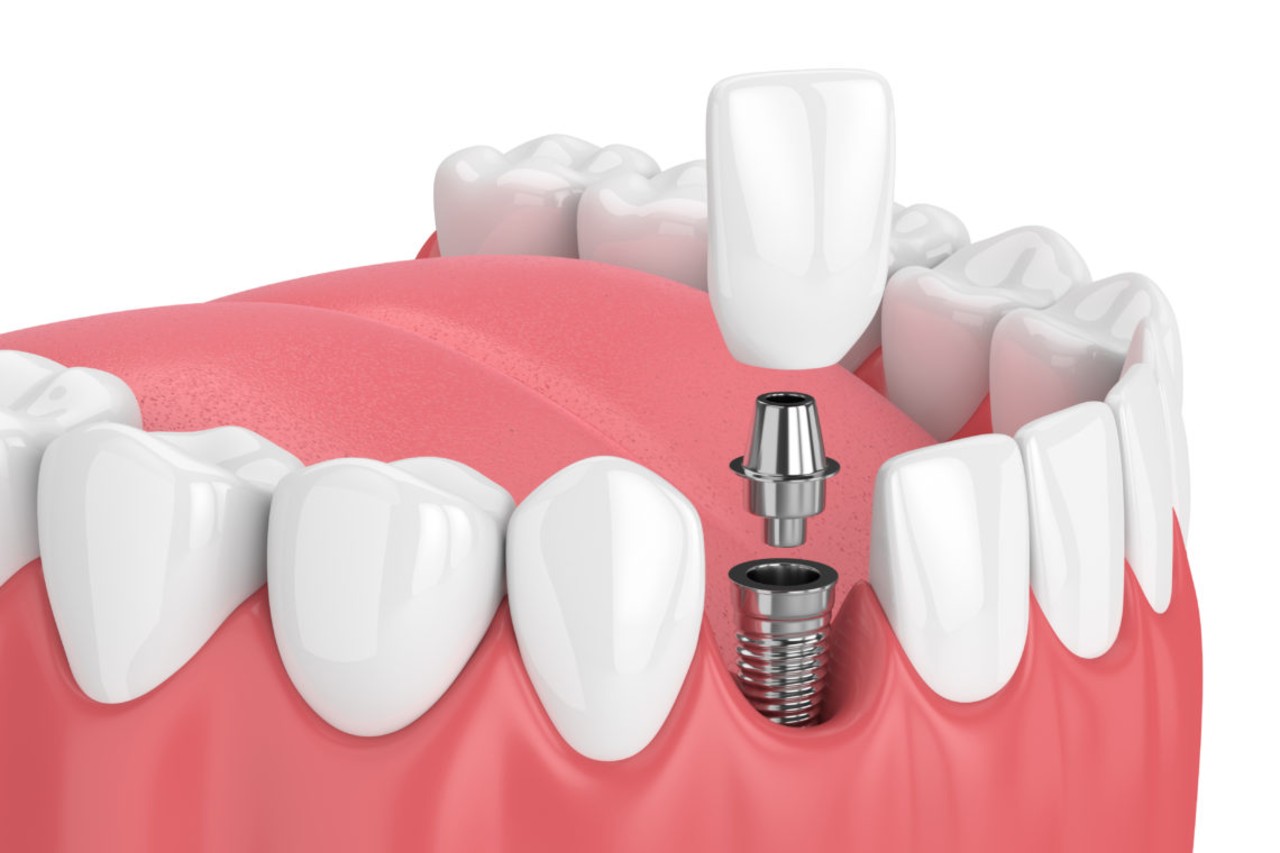If you have missing or damaged teeth, it can have a significant impact on your ability to talk, smile and feel like you used to. Dental implants provide an ideal solution to the problem, enabling the missing root to be permanently replaced and creating a strong foundation for replacement teeth. However, while dental implants offer many advantages, if you’re going to have something permanently attached to your mouth, you probably want to know how it works, what the procedure is like and how much dental implants cost.
What are Dental Implants?
Dental implants are titanium screw-like posts that are placed directly into the jawbone to create an artificial root. Once the post is in place, the jawbone is stimulated to grow, eventually fusing to the post to create a strong and durable replacement root. The visible part of the replacement tooth, the crown, is then attached to an internal screw within the root, known as an abutment. Once in place, dental implants feel, function and look just like natural teeth.
Dental implants can be used as replacement teeth for any adult, regardless of age. However, for them to be successful, there needs to be enough jawbone present to support them. What’s more, you need to be in good general health to reduce the associated risks of surgery and implant failure. In the event that there isn’t enough jawbone, preliminary procedures such as bone grafting can be used. Also, to replace a full arch of teeth, the innovative All on 4 procedure can avoid areas of reduced bone density. And, when it comes to general health, changes in certain lifestyle choices such as smoking and drinking can often make a difference.
The Dental Implant Procedure
If you’re considering dental implants near me, the first step is to book an examination with an experienced Wollongong dentist. During the examination, the implant dentist will be able to review your oral health and medical history and ensure that implants are the best possible treatment option for you. You will have a thorough evaluation, including detailed x-rays and impressions of your teeth, to assess the health of your mouth and jawbone and plan every step of your treatment. Assuming you don’t require any preliminary procedures such as tooth extraction or bone grafting, the dental implant procedure then follows three main stages:
- Implant placed – once anaesthetised, the titanium screw will be surgically placed into your jawbone. At this point, there will be nothing visible, and the implant will be left to heal for around six months.
- Abutment added – once the jaw has had time to heal and fuse with the implant, the abutment will be placed. This is the piece that screws into the implant and allows it to attach to the artificial tooth. The installation is usually done using local anaesthesia and is relatively quick.
- Crown attached – after the gum tissue has had a chance to heal around the abutment, usually after a couple of weeks, the artificial tooth can be placed. At this point, you will have a replacement tooth that looks, feels and functions like new.
While the whole process can take several months, afterwards, you effectively have a brand new tooth that should last as long as your natural ones. Then all you have to do is to continue visiting your Fairy Meadow dentist regularly and maintain excellent oral hygiene.
The Benefits of Having Dental Implants
When it comes to replacing missing teeth, dental implants are the only solution that replaces the missing root. This is what enables dental implants to be such a superior treatment option. By replacing the root, jawbone growth will be stimulated, your remaining teeth will be supported, and your face will look fuller and more youthful. What’s more, in contrast to ill-fitting dentures, dental implants are comfortable and long-lasting, giving you the confidence to live your life just like you used to.
Thanks to the many benefits they offer, dental implants have become an extremely common treatment for missing teeth. If you are wondering how much dental implants cost, then it all depends on how many missing teeth you have, the number of implants you need and the complexity of treatment required. One implant is a lot less expensive than a whole arch. However, by protecting your jaw and remaining teeth, you are investing in your long term health and your future smile.



